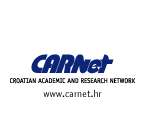

|
||
 |
||
 |
||


| Author: Nguyen Hong Van, DSV, Stockholm University, Sweden | | Full
paper | Presentation
| |
Abstract
Mobile agent technology has recently emerged, inter alia, as one of the most promising paradigms in computer networks. Commonly, a mobile agent is defined as a self-standing software segment, possibly written in a script language, and with a varying degree of autonomy. It can freely migrate across a network to perform tasks on behalf of many actors in the network system, such as other agents or moreover users.
Throughout the years, the client-server model has been dominant in
networks, including
distributed systems. The basic functionality of the model relies on
the necessary data transmission between a client and a server. Unfortunately,
this sometimes leads to too much network traffic being generated even
in the case of simple transactions. For instance, when the bandwidth
is low then there is a possibility that network congestion will occur.
Naturally, things might be improved in some situations, if one infuses
a kind of equity between the client and the server, which leads to peer-to-peer
approach.
What is the major difference between the client-server and the mobile
agent paradigms?
Difference from client-server paradigm, in mobile agent paradigm code
itself will move to the data source to execute calculation or process
information rather than data. Therefore mobile agent reduces significantly
network traffic, leading to cut bandwidth requirements and latency that
are caused by transmission of large amount of data via network. It also
leads to improvements in asynchronous execution, remote searching and
filtering, robust system architecture, and fault tolerance.
While our focus is on computer networks and the Internet technology, mobile agent paradigm has a wide potential for use in programming languages design and implementation, decision support and expert systems, management, in fact almost anywhere where there is a need for an adaptive entities, with high degree of flexibility and dynamism. Consequently, a large number of mobile agent systems, both in academia and industry, were developed. Some of the best known are: Telescrip, Aglet, Voyager, Concordia, and MOA.
Free migration is a feature that is present in all of the systems.
This attribute is contingent upon the portability of the code across
different mobile agent mechanisms. Hence, standardization is a must
and this requires a huge effort. Another problem is that either there
is none or very few indications for a "killer" application based on
the mobile agent approach. Basically, while mobile agent systems can
substantially improve occasionally the system performance, most of the
applications can be implemented efficiently by using traditional techniques
also. A major issue is also security due to many open and unresolved
problems. For example, the infrastructure of mobile agent systems, in
principle, lacks the ability to protect an agent from potentially malicious
system when visited by agents. Despite some setbacks and yet unexplored
territories, the research clearly indicates many advantages of mobile
agent paradigm. The renowned IBM report lists them in seven categories.
One thing might be that complex and global systems, such as networks
are, require often a multi-paradigm approach, and mobile agent paradigm
is certainly one of them.
Networks are getting increasingly complex in terms of the functionalities
and services offered, large in terms of the number of network nodes
and users today than a couple of decades ago. These changes lead to
vast amounts of data on the network, and a high level of users’ diversity
demands on the provision of services, the quality of these services,
reliability and security. To face with these challenges in the dynamic
open, distributed and heterogeneous network environments, mobile agent
is now considered as suitable emerging technology for network applications
due to its capacity on scalability, independence from hardware and software
and only dependence on execution
environment.
In the paper, we give an overview on the current state of affairs in the proliferation of the mobile agent paradigm in studying and modeling computer networks and point to few directions in the research that show a fairly large promise. The work posits our affirmative view of this novel field in computer networks and it evaluates its overall impact on the networks and the future of the Internet. This certainly includes, but is not limited to network and resource management, routing, congestion control, Quality of Service (QoS), fault tolerance, and security.
Biography
Nguyen Hong Van has been working for Information Technology Center at
Ministry of Science and Technology, Vietnam. She took part in some projects
related to the development and implementation of ICT applications at
ministries and Governmental organizations in Vietnam. She is currently
a PhD student of Computer Science at department of Computer and Systems
Sciences, Stockholm University and Royal Institute of Technology, SWEDEN.
Her research interests include protocol engineering, congestion control,
network technology and the application of mobile agent paradigms.